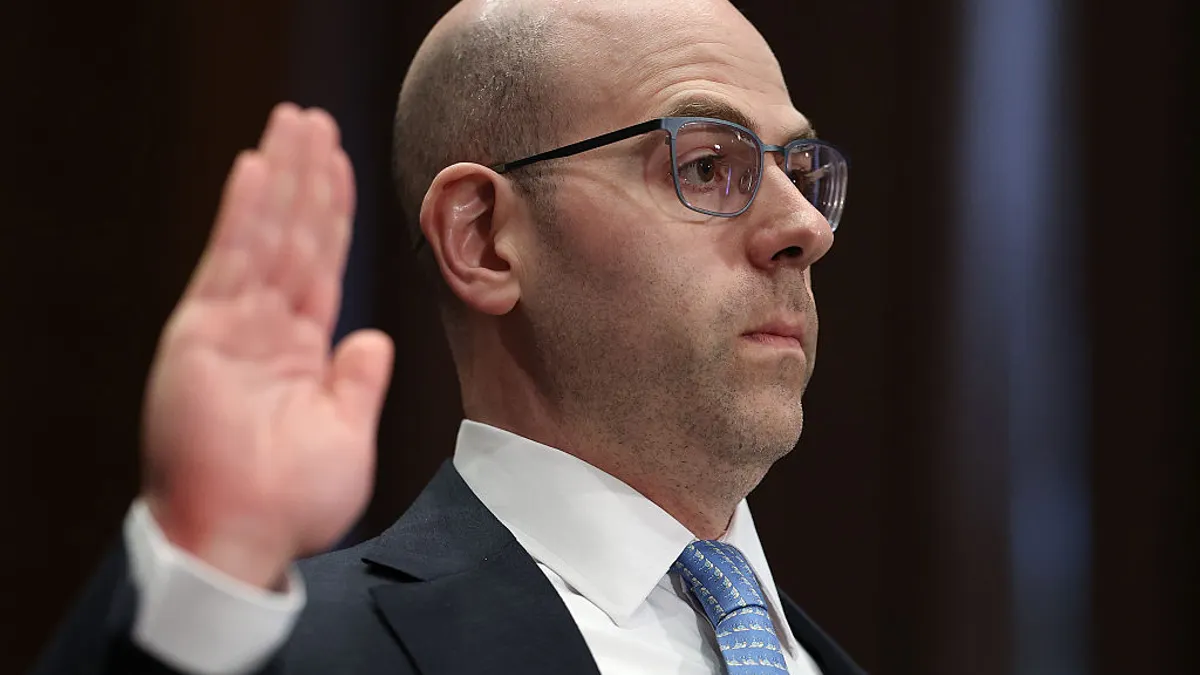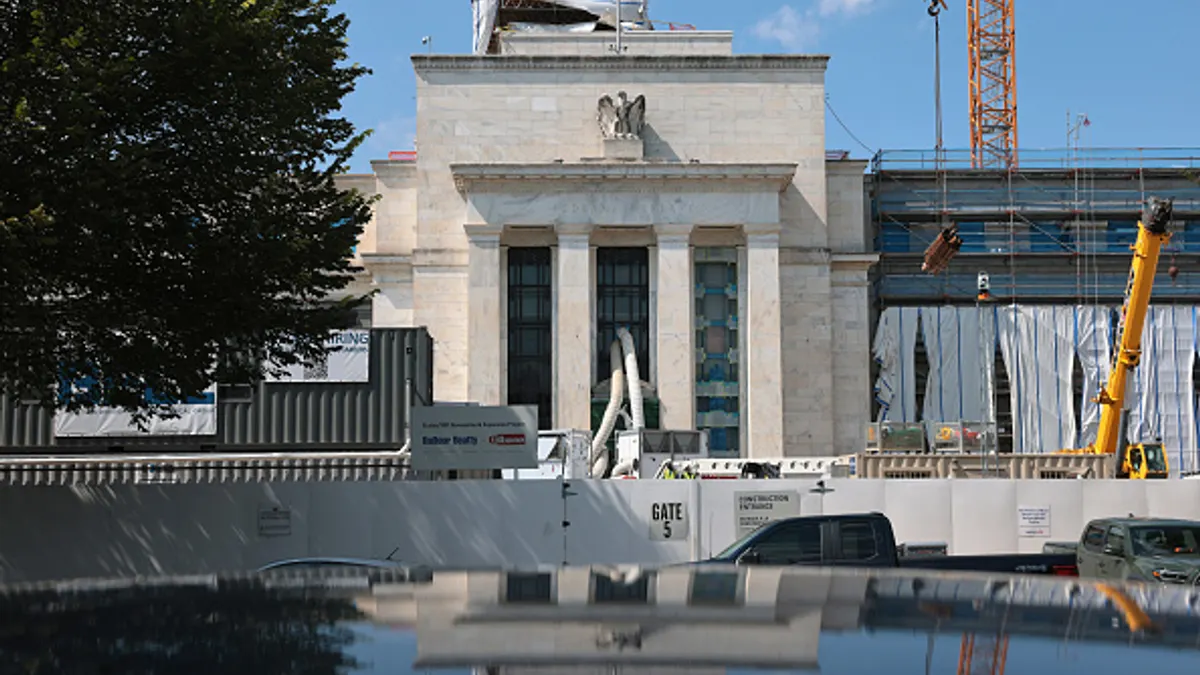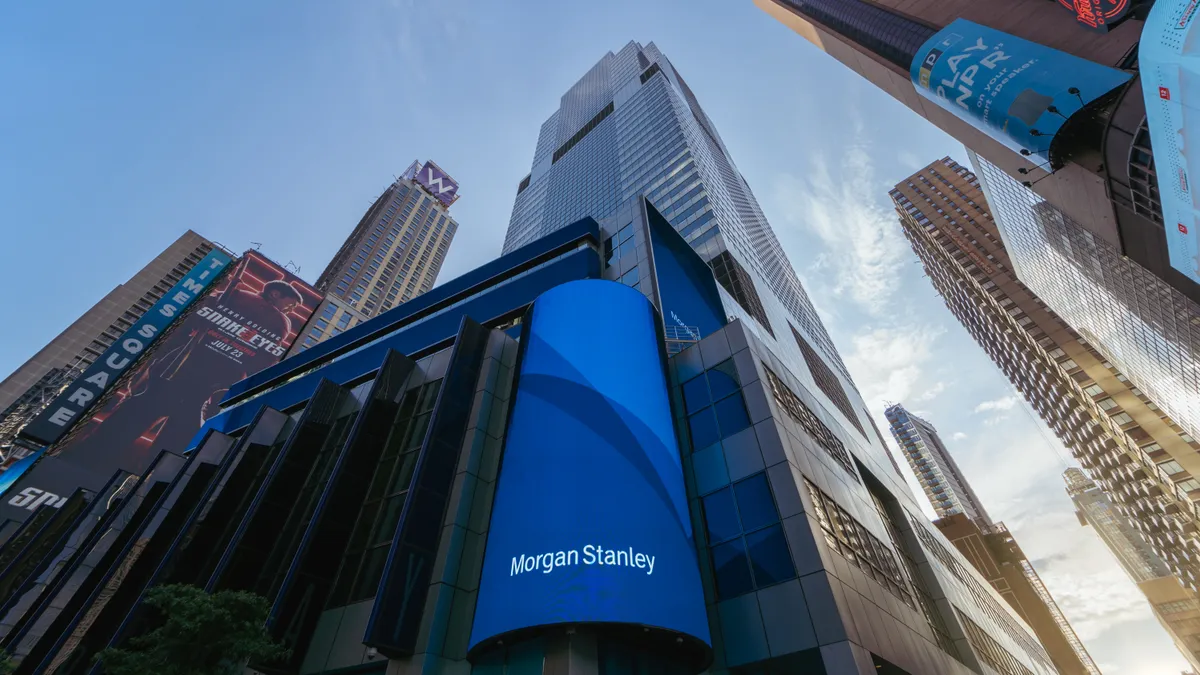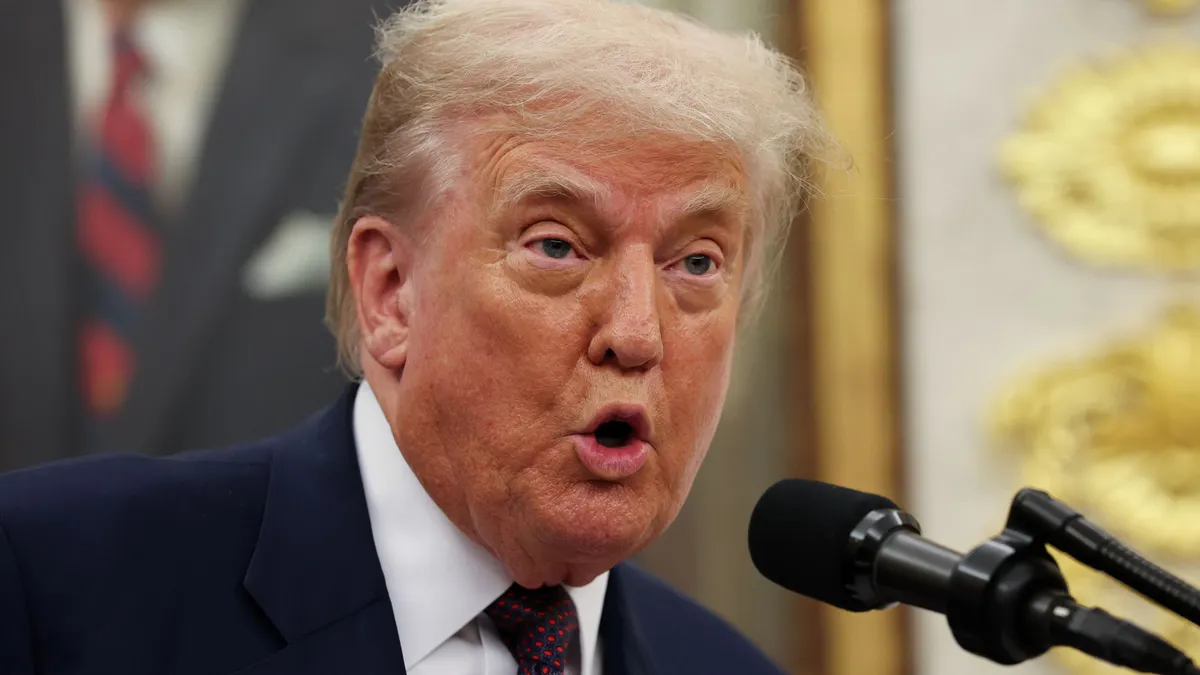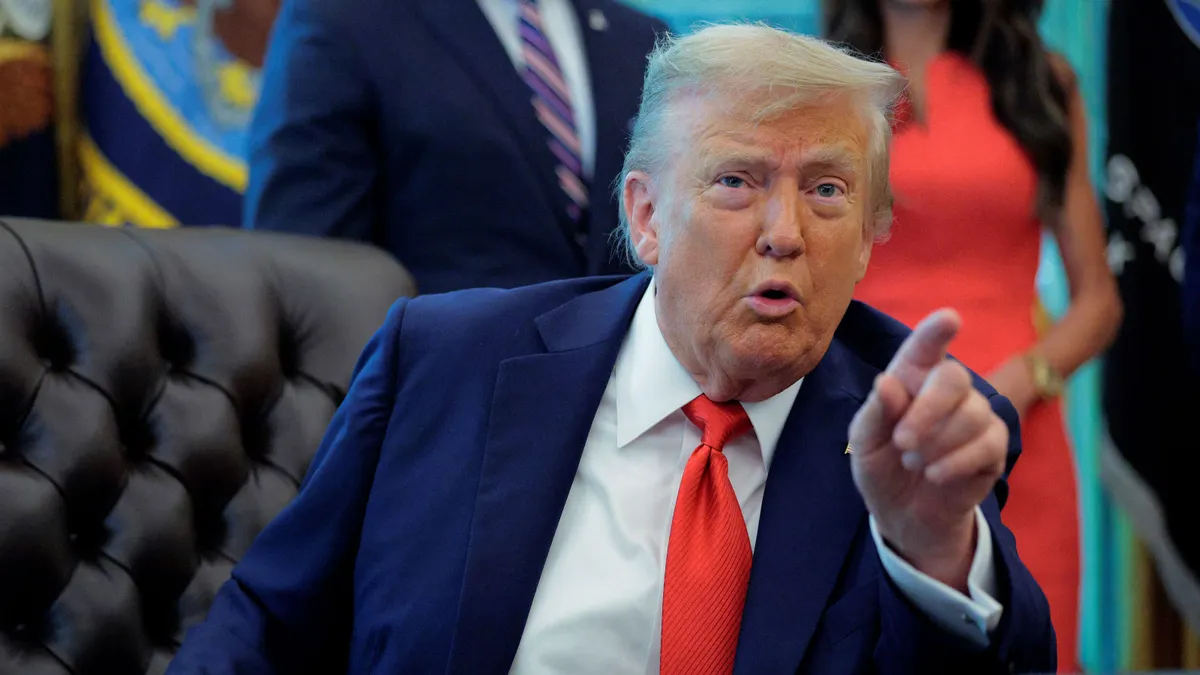Indirect effects of tariff volatility and economic uncertainty are having a chilling effect on some bank merger-and-acquisition activity, even as lenders receive signs of a less burdensome regulatory environment for M&A.
“We’re stalled in the starting blocks based primarily on lack of clarity as the Trump administration pursues its policies,” said Patrick Hanchey, a Dallas-based partner at law firm Alston & Bird.
That domestic policy uncertainty seems to hurt publicly traded bank stocks more than the general market, Hanchey noted.
Given stock reactions to President Donald Trump’s November reelection, expectations around interest rate cuts and a more business-friendly environment spurring regulatory easing, the industry entered the new year “really thinking it was going to be nirvana,” said Peter Winter, a D.A. Davidson analyst covering regional banks.
There’s been plenty of consolidation pressure, particularly for smaller banks, the past several years, and it felt like Trump’s win “was going to be sort of the powder keg,” said Christopher Olsen, managing partner and co-founder of investment-banking firm Olsen Palmer.
Lack of predictability regarding Trump’s trade war and taxes on imports, however, has disrupted that to some extent, analysts said.
Banks aren’t directly affected by tariffs and the surrounding volatility, but “there’s an indirect link, in that that has absolutely cooled bank stocks … over the last month or two,” Olsen said. The first three months of the year dealt U.S. bank stocks their worst quarterly loss since the spring 2023 regional banking crisis, with Keefe, Bruyette & Woods’ bank index falling 3.9%, Bloomberg reported Monday.
Higher bank stock valuations “helps grease the skids of dealmaking,” Olsen noted. When the buyer’s currency in a stock transaction no longer goes as far, it can lead to a bid-ask spread.
That’s creating roadblocks for some would-be acquisitions, Olsen said.
“What’s happening for some deals is they can’t agree on terms, if only because of valuations,” he said. Olsen Palmer works with banks nationwide with assets between $10 million and just under $10 billion.
He pointed to one all-stock transaction where deal terms were agreed to in December. But due to market volatility, the stock price of the buyer has declined, so the deal has been paused while the parties await a calmer environment and a stock price recovery.
“I imagine there are absolutely other transactions … already in process that are just like that,” Olsen said.
‘He could change his mind’
On the regulatory side, analysts and attorneys noted the timeliness of approvals seems more promising since Trump has returned to the White House. Hastening the bank merger approval process is something Travis Hill, acting chair of the Federal Deposit Insurance Corp., has labeled a priority.
Evansville, Indiana-based Old National said last week it received Federal Reserve and FDIC approval for its bid to acquire Minnesota-based Bremer Bank, a deal announced in late November. And Cadence Bank of Tupelo, Mississippi, received necessary regulatory approvals for its acquisition of FCB Financial Corp. just two months after announcing the transaction.
The Fed last month approved acquisitions by Mississippi’s Renasant Bank and Jacksonville, Florida-based EverBank. One mega-deal, however – Capital One’s pending $35.3 billion acquisition of Discover – is still waiting on regulatory approvals, more than a year later.
A faster approval process through regulatory easing is one expectation fueling a potential increase in M&A activity this year – predicted mainly for banks under $50 billion in assets.
“It seems to me that there are plenty of buyers and sellers, but the question is whether and when these institutions acknowledge that they are a buyer or a seller, even in the face of economic uncertainty,” said Joe Silvia, a Chicago-based partner at law firm Duane Morris.
If economic uncertainty persists, Winter is concerned pipelines may weaken. He noted one $30 billion-asset bank – eager to acquire another lender – said that in January, M&A conversations had notably picked up. More recently, however, the bank said conversations have stalled.
Stocks rallied March 24 on reports that the Trump administration had whittled tariff plans, but the market remained on edge in the lead-up to Trump’s planned tariff announcement Wednesday, when he intended to reveal the details of his “reciprocal” duties on some of the U.S.’s trade partners.
Given the on-again, off-again approach thus far, “he could change his mind,” Winter said. “The worry is, the longer this goes on, it’s going to create more issues.”
The impact to M&A may be felt more acutely at the larger regional or super-regional bank level, since many of those lenders may need to see their stock value and price rise before pursuing a deal that involves stock issuance or a stock swap, said Jacob Thompson, Dallas-based managing director of investment banking at Samco Capital. Smaller community bank deals, on the other hand, are typically cash transactions, or cash and some privately held stock.
Thompson said he’s working on a handful of transactions, advising buyers and sellers in the community bank space. So far, none of the participants have indicated they need to push pause, he said.
“In the smaller community bank space, I think you’re going to still see transactions happen,” Thompson said, because those lenders face persistent issues such as management and board succession concerns, investments in technology and infrastructure to remain competitive, and compliance burdens.
Banks’ deposit growth, net interest margin and net interest income remain strong, Hanchey said, “so there is reason to believe that stocks will rebound and support acquisitions once we have more domestic policy clarity.”
Still, if the Trump administration moves ahead with planned tariffs, and those slow the economy – which could take months or quarters to play out – Olsen, for one, will be watching the effect on credit quality at banks.
If tariffs lead to a recession, and a recession causes credit losses, “that will stall M&A like nothing else,” he said.










